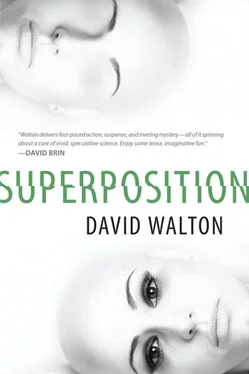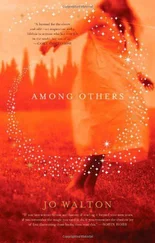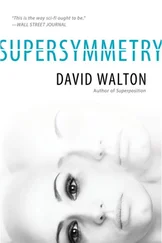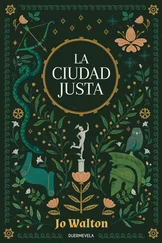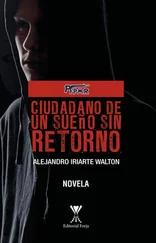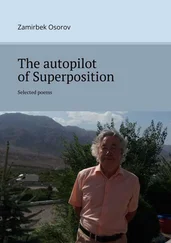“And what will that version of me remember?”
“Not a version of you. You. I don’t know what you’ll remember, but it will still be you. It’s as if you had to make a decision, whether to buy the red dress or the black dress, and you imagined what it would be like if you went down either path. When you finally made the decision, you wouldn’t lose any part of yourself, just because you didn’t go down the path of choosing and then wearing the black dress. This is the same. The path that turns out to be reality doesn’t change who you are.”
“It does if I don’t remember being on this path. If I won’t remember being me, the me who I am right now, then it very much changes who I am.”
I couldn’t argue with her—I had the same fears for myself. Time in prison had changed the other Jacob, had made him a different person than I was. How much of me would be left when we joined back up again? Was I defined by my memories, or by something else?
In a sense, none of us was ever the same person we’d been a year ago, or even an hour ago. We were more like a long chain of different people, each connected to the others by a memory of what had gone before and an expectation of what was to come. What defined Jacob Kelley, if it wasn’t my connection to previous versions of myself made possible by my memories? What if someone swapped my memories wholesale for another person’s—would I still be myself? Or would I be him?
Disturbing thoughts, but thoughts that were hard to dismiss, given the forking of my personality and memories in two directions. If I split again at this very moment, and one of me turned left and the other right, which path would I follow? The real me who was thinking these thoughts right now? Both of us would remember thinking these thoughts, but we couldn’t both be Jacob Kelley, could we? It was a tangle, and one with no way out that I could see. I wanted to encourage my daughter, but I had no true encouragement to give.
“I’m sorry,” I said. “I’m scared of what will happen myself. I don’t have all the answers.” I shrugged. “In fact, I probably don’t have any of them.”
Her face softened, and she leaned over and kissed me lightly on the cheek. “Now you’re being honest,” she said. “What’s your plan?”
“To find out what happened to them. After that, who knows?”
The days were warmer now. Leaves had returned to the trees, and flowers were in bloom, but the long trek through the Jersey Pine Barrens looked more or less the same as it had the morning I drove out with Marek to find Brian dead on the bunker floor. My thoughts kept going round and round about waveform collapse and what it meant, hoping Elena and the kids might still be alive somewhere, but trying not to hope too much.
We arrived, and I parked in the visitors’ lot. Sheila Singer was still back in Philadelphia at that moment, giving testimony, so we wouldn’t be able to question her. That was for the best, since she would also recognize me as the accused and probably call the police rather than talk. Now we just had to hope that no one else recognized me, though I thought our chances were pretty good in the visitors’ center. The real scientists rarely came here.
The atrium of the visitors’ center was cathedral-large, with high glass windows and a hanging model of the super collider hanging above our heads. Displays with names like The Quest For Unification and Baby Black Holes stood against the walls, with interactive models of atoms and informational touch screens. The young Asian woman behind the central desk was attractive in a studious way, with a pageboy haircut, large glasses, and a man’s button-down shirt. I approached her while Alessandra drifted off to look around the room.
“Hello,” the receptionist said with a bright smile, “How can I help you?”
“Do you know Sheila Singer, by any chance?”
“Sure, I do.” The smile faltered. “But she’s not here today. I’m sorry…”
“No, I know that. Do you work with her often?”
“Most days. We flip coins for the tours, because, to tell you the truth”—she lowered her voice—“it’s a bit boring sitting at the desk all day.”
I tried to sound conversational. “I’m sure it is. How long have you been working here?”
“Since nine o’clock.”
“No, I mean—”
“Oh! Sorry. A little more than a year.” Her forehead wrinkled. “Why do you want to know?”
“See, I work with the district attorney’s office,” I said. “Ms. Singer is testifying today about something she saw here several months ago, and we like to double-check our facts.” This claim seemed unlikely to me for several reasons, but I hoped she wouldn’t question it.
“Oh, this is about the case!” she said. “I was jealous that Sheila got to testify and I didn’t. It’s so exciting, you know?”
“Then you were here that day? When the woman came asking about Jacob Kelley?”
“I certainly was. It was right at the end of the day, and the woman looked frantic, and the oldest girl looked like she might have been crying.” She crossed her arms. “But Sheila was the one who actually talked to them, so she gets the court appearance and interviews with all the reporters.”
“And did Sheila tell the woman where she could find her husband?”
“Well, she didn’t know, did she? I think she just offered to call our manager. Then the woman asked about Dr. Vanderhall, and sure, Sheila knew him all right.”
“She did?”
“Oh, sure. They had a bit of a fling a ways back. Dr. Vanderhall has a bit of a reputation—I mean had a reputation. I probably shouldn’t say that about him when he’s dead, but you know, I told her it wouldn’t turn out well, and of course it didn’t.”
“What did Sheila say then?”
“She told the woman where to find Dr. Vanderhall’s office, and she said thank you and left.”
“Do you know where she went after that?”
The receptionist gave an odd shrug and looked out the window. “Well, I assume she went to Dr. Vanderhall’s office. Where else would she have gone?”
“That was the day they found Dr. Vanderhall dead,” I said.
“Well, yes, it was, wasn’t it? And her husband was the murderer,” she said, still not making eye contact.
“Suspected murderer,” I said.
“What?”
“He hasn’t been convicted. He might not have done it.”
“Yeah.” She waved a dismissive hand. “But they wouldn’t have arrested him if they weren’t pretty sure.”
“I see what you mean. Thanks for your time.”
I found Alessandra sitting on a bench near a display called Supersymmetry: The Thrilling Story of How the Universe’s Most Elusive Particles Were Found . Her unfocused expression told me she was eyejacked again. “What are you looking at?” I asked.
“Sheila Singer’s eyejack viewfeed history.”
“Really? You can do that?” I asked.
“It wasn’t that hard. I jumped down a chain of friends until I found a circle that included her. Most people aren’t that careful when it comes to security, or they just don’t care who sees their stuff. They just leave the default privacy settings, which supposedly limits access to your circle of friends, but really leaves it open to your friends’ circles, etc. Somebody who works at the same place my father used to work isn’t that many jumps away from me.”
“Well, what did you find? Can you see what she saw last December third?”
“There are thousands of hours of viewfeeds here. Looks like she’s a Lifer.”
“A what?”
Alessandra rolled her eyes. “A Life Logger. She keeps her eyejacks recording twenty-four/seven, so it’s a full record of her life. The viewfeeds aren’t very well organized or titled, though.” She paused a moment, and her eyes flicked from side to side. “Wow. I wonder if she knows that viewfeed can be publicly accessed.” Alessandra cocked her head and squinted. “I didn’t know anybody could be that flexible.”
Читать дальше
